|
“Andrew, the brother of Simon Peter, was one of the two who heard John and followed Jesus. He first found his own brother Simon and told him, 'We have found the Messiah' (which is translated Anointed). Then he brought him to Jesus. Jesus looked at him and said, 'You are Simon the son of John; you will be called Cephas' (which is translated Peter).” - John 1:40-42 As we celebrate the Feast Day of St. Andrew the Apostle, I am always reminded of the hidden nature of St. Andrew’s ministry. As seen in the passage from the Gospel of St. John above, Andrew is one of the first two apostles called by Jesus. Yet, we see very little of the rest of St. Andrew’s specific ministry as an apostle outside of his crucial role in bringing St. Peter, his brother, to Christ. This action taken by St. Andrew – his ‘yes’ to Jesus’ mission – was crucial to the conversion of the rock of our Church, and requires greater reflection to see how just like St. Andrew, we are called to a hidden, simple, and apostolic life that leads to the raising up the next leaders of the Church. Like all things in the Christian life, St. Andrew’s life changed when he met Jesus and was called to follow Him. Earlier in the first chapter of John, St. Andrew leaves behind everything to follow Jesus, recognizing Him as the Way, the Truth and the Life. Similarly, we in living the Christian life have all experienced that moment when we heard Jesus calling us into relationship and adventure with Him, and responded enthusiastically to that call, leaving behind the ways of the world to follow Christ. After being called, we see that St. Andrew helped to bring other people to Christ – he didn’t want to keep the good news that he had found to himself. Not only did St. Andrew want to bring his brother Peter to Jesus, but he recognized that Peter had a mission in the Church as well, and he rejoiced in what God wanted to do with the life and talents of his brother. In stepping out in the apostolic life, the first step in evangelization is to go out and share the good news with those we encounter. However, the second, and I believe more important step, is to recognize gifts in others that can help to build up the kingdom, and calling those people to use their gifts for God’s will. This kind of evangelization is very hidden – no one knows the people who helped to build up the great saints of the Church – and yet this ministry is so crucial. Evangelizing and accompanying, as St. Andrew exemplifies, allows us to rejoice in God’s movement in the world, and allows others to fulfill the fullness of their personal vocation. Who in your life has been given gifts that can be used to build up the kingdom on earth? Take a step of boldness and guide them towards the Lord so that their gifts can be used for the greater glory of God. With the intercession of St. Andrew, let us pray that the Lord will give us the grace to live out the last line of the Litany of Humility fully: “That others may become holier than I, provided that I may become as holy as I should, Jesus grant me the grace to desire it.” St. Andrew, the hidden apostle, pray for us! **This image is from: https://www.wga.hu/html_m/r/roelas/sandrew2.html**
0 Comments
I recently started a podcast called “You Are More,” that focuses on living life outside the box yet inside the bounds of God’s perfect plan. As a therapist, I want people to know they are not defined by any box or label in their life. This idea originated after I wrote a book about each person being more than their relationship status. God defines us; labels just help describe us. One of my podcast guests posited that the saints are more than saints. Though we know saints by the parishes, organizations, and cities that honor them, or by reading their names in Scripture, they are humans at their core. The Chosen is a TV series that exhibits the humanity of Jesus and His disciples beautifully. After watching the first three seasons of The Chosen, characters pop off the page when I read or hear passages from the Bible. This week, we celebrate two apostles who share a feast day: St. Simon (the Zealot or the Canaanite) and St. Jude (also known as Thaddeus). Both men are lesser known than Peter, James, or John. And yet, they are close followers of our Lord. I can picture their personalities and their journeys. In the show, they are known as “Z” and Thaddeus. Franciscan Media explains that for Zealots, “the messianic promise of the Old Testament meant that the Jews were to be a free and independent nation. God alone was their king, and any payment of taxes to the Romans – the very domination of the Romans – was a blasphemy against God.” Loyola Press adds that, “some Zealots were very concerned that the spiritual ideals of their religion be kept. But others acted more like modern-day terrorists by raiding, killing, and inciting riots.” Linked below is a depiction of Simon Z being called to follow Jesus that shows he felt defined by his zealot training and weapons. Jesus told him that He does not need Simon, but he wants him… not for his weapons, but for him. https://www.youtube.com/watch?v=4JgOKkGBIQs&t=182s In this dinner conversation at the Wedding at Cana, Thaddeus shares with the disciples how he met Jesus working by his side at a construction site. Linked below: https://www.youtube.com/watch?v=xWciL5R5XtY The disciples were friends with Jesus and with one another. They lived in community and had their likes and dislikes, their strengths and weaknesses. The reason the Church shares the stories of the saints is not to show us unattainable ideals, but to remind us of what is possible for each of us. We can find our story in their stories and be encouraged that they were able to hold onto hope, faith, and love throughout life’s ups and downs. You may be a passionate person who is willing to take risks in the name of peace and justice like Simon Z. You may be meeker and inclined to accompany others, so they feel seen and heard like Thaddeus. You may even connect with another disciple better than either of these men, but that is a beautiful reminder that you are unique and have your own gifts. If you are not authentically you, you cannot be a saint. Jesus made you to be who you are, not someone else. Simon and Thaddeus may be lesser known in the story compared to the bigger names, yet, they are wanted by Christ. Jesus wants you to follow Him just as you are. Some of us have lost hope in our lives, and as a therapist I like to offer to hold the hope for my clients until they are ready to pick it back up again. In the Church, we know Thaddeus as St. Jude, the patron of hopeless causes. His name was originally Judas Thaddeus, which was eerily like the name Judas Iscariot, the one who betrayed Jesus. Because of this similarity, people were afraid to pray to him until St. Bridget had a vision of Our Lord asking her to confidently pray for his intercession. He became known as Jude to differentiate him from the infamous Judas. Now, countless miracles are attributed to his intercession. Simon and Jude both show different sides of Our Lord. Our Lord can be determined, feisty, and aggressive while also being slow, quiet, and gentle. Both exhibit hope. Article 1817 of the Catechism of the Catholic Church describes hope as “the theological virtue by which we desire the kingdom of heaven and eternal life as our happiness, placing our trust in Christ's promises and relying not on our own strength, but on the help of the grace of the Holy Spirit.” How are you desiring the kingdom of heaven? How can you place a greater trust in Christ’s promises this week? How can you rely less on your own strength and more on the grace of the Holy Spirit? Sts. Simon and Jude, pray for us! **This photo is from The Chosen television series.**
In 2020, when the COVID-19 pandemic was beginning in earnest, there were many questions about what would happen in the Catholic Church if people’s lives were upended in such profound ways. In many respects, we may not truly understand the ramifications of a worldwide change in perspective until we can look back at it. That being said, with “the return to normal,” the opening up of parishes, and the re-starting of activities have come questions about what we have learned from this pandemic experience. I think many of us re-learned that community and connection are important. The question that seems to be challenging folks is: Now that we can start to plan to meet in person, what should our parish activities look like? For the past two years, I have had the pleasure of doing Master’s work in Church Management at Villanova University. Most of my studies occurred during this pandemic and offered a unique perspective of what effective parishes and communities have done to respond to a sudden shift in the assumptions of what the Church in the United States looks and acts like. Most of the parishes that were able to weather the storm well were able to do so because they were intentional about what community is and should be. They did not assume that a parish had to be only the functions that happen within a city block or a singular location, but rather can have an online presence and remotely meet people where they are. I think of my friends and colleagues with young families or who have long commutes and the complications that our parishes can impose on people who would like to be involved, but cannot be due to the lives that they lead. Are we as church leaders imposing certain restrictions for the members of the parish to be able to build a community? As active Catholics, our job is to share the joy of the Gospel that we hopefully have experienced with others. The pandemic has proven that there is a desire for community and for Christ in people’s lives despite barriers. However, we as Catholics also need to acknowledge that if we “are now just going back to normal,” we are also going back to the normal of an older and smaller church. We need to see the pandemic not as a temporary event, but rather the opportunity that God has given us to think creatively and reflectively over the past year about what it means to be Catholic in the United States. Similarly, what is our hope for the future of the Catholic Church in the United States? If we do not think about these things, we risk becoming a closed community for only those who are already active members. There were many challenges during the pandemic, but there were opportunities to grow and learn for our Church as well. My hope is that we take the lessons that we have learned, both positive and negative, about what it means to be in a community and to be community leaders and apply those findings in healthy, creative ways going forward. For more resources on navigating COVID-19 as a community, please click here. Have you ever evangelized in the streets? St. Vincent Pallotti did in the Rome of his day. He would go to a piazza and begin preaching. People would gather around. Some priests even judged him for engaging in this type of evangelization because they considered it beneath his dignity as a priest. However, he knew that many people did not come to church. Pallotti believed that the Church needed to go to people and not wait for people to come to church. These truths hold firm today. This is the call of all the baptized. We are sent by Christ into the world to preach his Gospel by word and deed – to be his witness in the world as his apostles or missionary disciples. Pallotti wanted to preach not only to those who did not believe, but also to Catholics in order to revive their faith. It may seem strange to evangelize in the streets, but in my hometown of Hammonton, New Jersey, Catholics have been doing so for 145 years. Every year, Catholics in the community have participated in an annual procession through the streets of the town in honor of the Blessed Virgin Mary under the title of Our Lady of Mt. Carmel, whose feast day is today. This is a very public display of faith that spills out from the church building and into the streets—mirroring the work of Pallotti. We are told “Go” at the end of Mass, but go and do what? Go into the streets, not only the literal ones, but also the ones online. We are moved outward by Christ. Our faith in Jesus Christ and our experience of his infinite love and mercy is not our private matter. Nor is it ours to decide the quality of another’s life of faith. Our mission is to witness Christ to all we encounter and accompany them into an encounter with him, in and through the community of faith, the Church. Through good accompaniment, sincere community, and deeper conversion, all can come to know that they are sent by Christ. May the charity of Christ urge us on! When I was a senior in high school in the diocese of Joliet, then-Bishop Peter Sartain came to celebrate one of our monthly school Masses. I was asked to assist the Bishop for the day, and throughout the day he and I had many warm conversations. I received a piece of mail a few weeks later from Bishop (now Archbishop) Sartain containing a handwritten note and several prayer cards with Blessed Pier Giorgio Frassati’s image on them. Little did I know that the young Blessed would soon become one of my dear patron saints. In my opinion, anyone who offers their life as an apostle on mission—including lay and ordained ministers, Catholic school employees, catechists, and all spiritual guides—should keep Blessed Pier Giorgio Frassati as their patron saint and their example to combat despair and to joyfully share the Gospel. Blessed Pier Giorgio shows us the Christ-like demeanor and personality that the Church and her ministers and missionaries should possess as they evangelize the world. Blessed Pier Giorgio makes an excellent spiritual guide and mentor because he was an ordinary young man with a profound commitment to the poor and to justice. There are countless books and articles that describe how Pier Giorgio spent hours serving the poor and the homeless, often giving away the money he had for bus fare and even his own jacket! His parents misunderstood his great actions of charity, and often scolded him when he returned home late without his coat. He was never distracted from the missionary imperative of the Gospel. Instead, he served those on the margins as Jesus commanded. Archbishop Wilton Gregory of Washington D.C. recently stated in a webinar, “The Church lives in society. The Church does not live behind the four [walls] of the structures where we worship.” Just as Pier Giorgio Frassati befriended the poor and sought justice as a “man of the beatitudes,” we too must go beyond the four walls of our churches, homes, and offices into the margins of our society to serve our brothers and sisters and work for justice. Blessed Pier Giorgio also accompanied others in their pursuit of God. He maintained unlikely friendships and was neither bound up by cynicism nor weighed down by scandal. Instead, he actively worked against these in his interactions with all. Many stories detail his love for pranks, making bets with his friends over games and making the stakes be attending Mass or Adoration. Like this soon-to-be-saint, we must live in the world while encouraging others to return to Christ in the spirit of friendship. As apostles on mission, we must live, work, and play with a renewed spiritual vision, driven by the practice of spiritual accompaniment. The quality I most admire in Blessed Pier Giorgio is his ultimate trust in God’s plans. He did not try to take control of his life’s plan nor did he envy God’s authority. Rather, he allowed God to guide him as he discerned his future and his mission in life. Pier Giorgio brought Church doctrine to life through his service and actions. He lived with a gospel-inspired freedom. He spent time in deep prayer, contemplating the mission God had laid before him, discerning to serve the poor as a lay man with expertise in mechanical engineering rather than as a priest. Pier Giorgio trusted God. As Alfonso Nebreda, S.J. wrote, “We must not forget that man cannot nourish his spirituality with orthodoxy alone … there is more to Christianity than this … for faith is life” (Kerygma in Crisis?, Nebreda). Blessed Pier Giorgio embodied the Gospel, and he lived it out according to his mission from God. As we consider the life of Blessed Pier Giorgio Frassati, I invite those who serve the Church as lay or ordained ministers, catechists, educators, and spiritual guides to adopt this young saint as a guide for our spiritual lives and our ecclesial missions. Let us invite the same Spirit who lived in Blessed Pier Giorgio and who makes the Church vibrant to renew our hearts, minds, and missionary efforts. Blessed Pier Giorgio, pray for us! Interested in learning more about becoming an apostle on mission? Click here to learn more. “Always ask the Spirit what Jesus expects from you at every moment of your life and in every decision you must make, so as to discern its place in the mission you have received.” -Pope Francis, Gaudete et Exsultate, 23
Have you ever prayed a novena? Some people might find such a thing out of fashion, but it is making a return among a number of Catholics. For some, the practice never left. For nine years, as pastoral director of St. Jude Shrine in Baltimore, Maryland, I led weekly novena prayers on Wednesdays and Sundays during the perpetual novena in honor of St. Jude, patron of hopeless cases. The custom of praying a novena, usually nine days of prayer, arose from the liturgical period of nine days between the Solemnity of the Ascension of the Lord and Pentecost Sunday. (In recent years, many dioceses have moved the Solemnity of the Ascension from Thursday to the Sunday before Pentecost.) This liturgical time marks for us the period between when Christ ascended to the Father and the sending of the Holy Spirit on the Blessed Virgin Mary, the Apostles, and the disciples. The Risen Christ gave his followers a mission. He told them to “Go”. But go and do what? “Make disciples of all nations, baptizing them in the name of the Father, and of the Son, and of the Holy Spirit” (Matthew 28:19). They did not go immediately, but instead were looking at the sky. They were confused. Then they went into the Cenacle or the Upper Room, prayed and discerned together. They were not ready to go forth on mission for Christ. When the Holy Spirit came at Pentecost, they received the boldness to preach and to heal in the name of Jesus Christ. Only then did they accept their being sent by Christ. As Christ sent them, so he sends us. St. Vincent Pallotti taught, as did the Second Vatican Council, that the baptized are sent into the world as apostles of Christ. In word and deed, our world needs to hear proclaimed that God is love, Christ saves, and Christ is alive (Christus Vivit, chapter 4). This is the initial proclamation of the Good News or the kerygma. When people encounter us, do they encounter Christ? Do we accompany them into greater faith in him? Are they welcomed into the community of faith, the Church? Do they realize that they, too, are sent? (cf. Living as Missionary Disciples, Part I). We do none of these works alone. We are dependent on the Holy Spirit. As Pope Francis teaches us, “When you receive the Spirit, he draws you ever more deeply into the heart of Christ, so that you can grow in his love, his life and his power (Christus Vivit, 130). The Holy Spirit will guide us in our discernment and in the mission that we have been given by Christ. May the Charity of Christ urge us on! “Seek God and you will find God. Seek God in all things and you will find God in all things. Seek God always and you will find God always.” – St. Vincent Pallotti
Today is the 225th anniversary of the birth of St. Vincent Pallotti. In the first twenty years of his life, he experienced a pope run out of Rome by revolutionaries who died in exile and another taken from Rome and held in France by Napoleon. When that pope, Pius VII, returned in 1815, Pallotti was 20 years old and three years away from his ordination to the priesthood. He saw people who were baptized throw off their faith and take up revolution. He witnessed clergy and religious who needed renewal. Twenty years later, in 1835, he founded the Union of Catholic Apostolate, an association of lay people, religious and clergy in order to assist in the Church’s missionary efforts, revive the faith of Catholics, and enkindle charity in the hearts of all. Amid a cholera pandemic that hit Rome in 1837, he worked tirelessly along with the small and new community of priests and brothers, as well as lay people, to care for the suffering and the dying, both spiritually and physically. In the aftermath of that pandemic, which left many orphans, St. Vincent Pallotti founded through the Union of Catholic Apostolate the House of Charity in Rome in 1838. This orphanage for girls is still in operation today and is the birthplace of the Pallottine Sisters. St. Vincent Pallotti evangelized in the streets, cared for the poor, taught and provided spiritual direction to seminarians, clergy, and religious, served in prisons and hospitals, was confessor to the poor and popes, aided the Church’s work in the missions, including the United States, and fostered what today we would call collaboration and co-responsibility among Catholics so that they would live as apostles of Jesus Christ. He was also a mystic who experienced God as Infinite Love and Mercy. It was this experience of God that sent him forth, urged on by Christ’s charity or love (2 Cor. 5:14). Even seeing a third pope and long-time friend, Bl. Pius IX, flee Rome due to revolution in 1848, St. Vincent Pallotti still worked tirelessly until his death in 1850 in the hope that all would come to full life in Christ. His great project of the Union of Catholic Apostolate did not grow large in his lifetime. Today, though, thousands of his spiritual sons and daughters of the Union of Catholic Apostolate—which also includes the Pallottine Fathers, Brothers, and Sisters—continues his work in 56 countries around the world. Pallotti was canonized by St. John XXIII in 1963, just over a month after the close of the first session of the Second Vatican Council—an appropriate time given the Council’s teaching that all are called to holiness and to live as apostles of Jesus Christ. Blessings to all on the birthday of St. Vincent Pallotti! May the Charity of Christ urge us on! At the time I’m writing this post, daily life as we’re used to has been turned on its head as a result of the COVID-19 global pandemic. Non-essential businesses are closed, usually busy streets are empty, many schools and workplaces are operating remotely—if at all—and people everywhere are isolating themselves and thinking about supplies. Perhaps most striking are the extraordinary measures the Church is taking to slow the spread of the coronavirus: public celebrations of Mass are suspended, as are any number of RCIA, seminary, and parochial academic and sodality programs, and any sacramental celebrations that had been planned can only take place with minimal attendance. While the faithful have been dispensed of the obligation to attend Sunday Mass, we can’t help but feel a growing hole in our hearts which can only be filled by lovingly receiving our Lord in the Eucharist. This was not the Lent any of us had been expecting— certainly we are all giving up more than we had bargained for!
Does this remind anyone of Holy Saturday? Holy Saturday allows the faithful to pause and meditate upon the emotionally heavy commemoration of the Lord’s Passion and Death on Good Friday before rejoicing in the glorious joys of Easter Sunday. Holy Saturday is strange because no Masses are celebrated anywhere on the planet and the faithful find ourselves waiting for the Easter dawn when we can rise from having humbled ourselves through the Lenten practices of prayer, fasting, and almsgiving. These days may resemble Holy Saturday for all who are waiting in isolation from the outside world. Like the Apostles’ experience of the first Holy Saturday, we are all resigned to waiting: for positive news about testing and treatment for the virus, yes, but also for the reopening of schools, businesses, and churches, and for being able to rekindle relationships in person. Still, we recall we are not done with Lent yet. However our Lenten spirituality has been affected by self-quarantining, the liturgical life of the Church continues despite the virus. Our churches may be devoid of public celebrations, but the Church Universal endures and can adapt, using the tools of the times to evangelize and to address the yearning of our hearts, souls, and very beings. The Church, after all, is more than the sum of her buildings, real estate holdings, art, music, and writings—she is alive in each of us as we continue our Lord’s earthly ministry by serving one another in love, compassion, and mercy. There are plenty of reasons to hope. We see online reports of priests who, out of love and care for their people, broadcast their celebrations of the Holy Mass through the Internet or radio, adapting scheduled hours in the confessional, Lenten reflections and observances, and Eucharistic Adoration in ingenious ways (such as from cars), and connecting many to available life-sustaining resources. Let’s lift up in prayer our priests who continue to lay down their lives for others, especially for the sick or dying, and who continue to shepherd their people throughout this unprecedented time. Let us also consider offering them a token of appreciation; we must never take them for granted! The faithful are benefitting from the love of our priests despite not being able to see them as usual. We are discovering all sorts of new spiritual resources developed by generous catechists and are finding ways of caring for our neighbors’ spiritual, emotional, mental, and physical needs. We remain united in faith, hope, and charity as we navigate these days of uncertainty and waiting. Nevertheless, we have unique opportunities for personal growth this Lent and Easter: bringing others into a new encounter of trust and peace with Jesus Christ and His Church. Similar to the experience of the early Church facing threats to their very existence, we may not have open parishes at the moment, but we nurture and care for the domestic churches of our friends, families, and loved ones. We are one Church—pursuing holiness and the same heavenly destiny—assured by the Almighty Himself of the ultimate victory over evil and death which is the Easter rising of the Son: “I am the resurrection and the life; whoever believes in me, even if he dies, will live, and everyone who lives and believes in me will never die.”[1] For more resources to accompany you throughout the Lenten and Easter seasons, click here. For more resources to accompany you through the COVID-19 pandemic, please click here. [1] John 11:25-26, cf. Revelation 1:17-18. 1 Corinthians 13: 4-8 “Love is patient, love is kind. It is not jealous, [love] is not pompous, it is not inflated, it is not rude, it does not seek its own interests, it is not quick-tempered, it does not brood over injury, it does not rejoice over wrongdoing but rejoices with the truth. It bears all things, believes all things, hopes all things, endures all things. Love never fails.” Like many of you, I have been quarantined in my house for the past ten days. I have set up my makeshift home office that moves throughout the day. My wife, on the other hand, is an ICU nurse: three to four days a week, she has been working in the very stressful environment that many of our medical professionals are experiencing. Over our four years of marriage, we have realized setting aside intentional time each day for one another is vital for our marriage. As we endure this pandemic, that intentional time has become even more necessary as we deal with the uncertainty, tension, worry, and fear building up over the day. One of the resources that my wife and I use to structure our time with each other is 1 Corinthians 13: 4-8. Throughout our twelve-year relationship, 1st Corinthians has been something we have continually turned to in both times of joy and struggle. Whenever this passage is read at Mass or during a wedding, I always feel a significant poke in the arm when “love is not rude” is proclaimed. Besides that subtle reminder from my loving wife, this passage always directs us back to our common call to love and support one another, especially during challenging times like today. Every family has had to endure this pandemic differently. However, we all share a call to set aside time to support our spouse, reminding them that our love—when it is centered on Christ and directed towards each other—can endure all things. Due to the stresses of family life, intentional time for prayer and each other are usually the first activities to go. While we dated across states, we made sure that our relationship included intentional time, eventually becoming a virtue of our relationship. When we married and began living under one roof, we assumed this time would happen automatically, but reality was the opposite. My wife’s schedule as a night nurse and mine as a pastoral associate meant our schedules were never in sync. We noticed our interactions becoming superficial, which caused us to easily become frustrated with each other and unaware of what the other was experiencing throughout their day. It took us almost six months to realize that even though we were living under the same roof, we had to be more intentional about our one-on-one time with one another. Pope Francis emphasizes couples setting aside this intentional time in his Apostolic Exhortation, The Joy of Love, “Time is needed to talk things over, to embrace leisurely, to share plans, to listen to one another and gaze in each other’s eyes, to appreciate one another and to build a stronger relationship...” (24). For my wife and me, this passage reminds us of how important setting distractions like our phone or TV aside for even 5 minutes, looking each other in the eye, and being able to share the highs and lows of our days is for our marriage. Pope Francis provides every couple the reminder that the love that is shared between spouses is ever-growing and takes the work of both partners to refine it. This meaningful time is more important during these weeks of quarantine, with the disease’s impact on the nation and our own family and friends, leading us to despair about the future. Too easily, we can let fear get the best of us, causing tempers to flare or directing emotions at our spouse or families. Like my wife and I when we first married, this intentional time will not automatically happen now that we are forced to be under the same roof. I would like to share some resources that my wife and I have personally found helpful throughout our relationship to support each other emotionally and spiritually. Hopefully, they will provide some structure to this time with your families, provide solace during these weeks, and become habits you will carry on after this pandemic passes.
[1] Francis, Amoris Laetitia,133. [2] Gottman, “The Natural Principles of Love,” 15.
Founded in the 17th Century, Saint Patrick’s Day is both a commemoration of Ireland’s patron saint as well as a popular celebration of Irish culture enjoyed worldwide by the Irish and the Irish-at-heart. Folks wear green, host parties and parades, and enjoy Irish food, drink, and dancing. While the holiday holds special significance for Irish-Americans (who represent the largest chunk of the global Irish diaspora), Saint Patrick’s Day is a feast that all are invited to share in. The lasting, inclusive nature of this holiday has much to do with the Irish people, their fight for freedom, and their collective experience as immigrants in America. Fittingly, Ireland’s patron saint was himself an immigrant to Ireland from his native Roman-British shores. We celebrate Patrick today because he successfully spread Christianity across 5th century Ireland – a mission that forever altered the destiny of the Irish people. Patrick is beloved for preaching in the Gaelic language, for using natural imagery to illustrate Gospel truths, and for driving away superstitious pagan beliefs. Like many early saints, Patrick’s story is a mixture of legend and fact. However, beyond the colorful lore stands a real person whose deeds and words continue to inspire and affect us. To help you better know the man behind the myth, here are ten fascinating facts about Ireland’s very first bishop: 1. Patrick was not born Irish. While he spent the majority of his life living among and ministering to the Irish people, Patrick was a Roman Briton by birth. His exact birthdate and birthplace are uncertain, but it is believed he was born in Scotland, England, or in northern Wales around 386 A.D. 2. Patrick first came to Ireland as the captive of Irish pirates. Patrick was a teenager when he and “a large number of his father’s slaves” were stolen and sold into slavery by Irish raiders. This began a six-year stay of captivity in Ireland, during which Patrick’s spiritual conversion began while he labored as a shepherd. 3. Patrick escaped slavery with help from a dream. After years of suffering and intense prayer, a voice in his dream said, “You have fasted well. Very soon you will return to your native country” [Confessio, 17]. The voice then told him where he would find a ship, some two hundred miles away, to carry him home to Britain and his family. 4. Patrick spent time studying for the priesthood in France. After his return to the Britons, Patrick travelled and continued his studies in Christianity at Auxere, France (formerly Gaul), possibly visiting Marmoutier Abbey in Tours, before being ordained. 5. Patrick received a vision calling him back to Ireland. After his parents begged him to cease his adventures, Patrick received another dream in which a man approached him carrying letters from the Irish people and imploring his return. Fr. Jack Wintz, OFM says, “What is interesting about this dream… is that it came not as a directive from God, but as a plea from the Irish…. Patrick wasn't commanded to bring civilization or salvation to the heathens. He was invited to live among them as Christ's witness.” 6. Patrick’s Irish mission was unpopular. Few of Patrick’s brother clergy shared his sympathy for the Irish people, who were viewed as barbaric and hostile. Patrick’s superiors disapproved of his calling; his Confessio (first-person account of his life) was written partially as a defense and a response to critics of his mission. 7. Patrick wasn’t the first Christian missionary to Ireland. Fr. Jack explains, “There were some Irish Christians, mostly on the eastern and southeastern coast. Many of these were probably British slaves who had been taken into captivity by the Irish. There is a record of a Bishop Palladius being sent to Ireland before Patrick. But the mission of Patrick was unique.” 8. Patrick taught the Gospel through Celtic language and symbolism. Patrick preached effectively in the Gaelic tongue, and he employed pre-existing pagan symbols in transmitting the faith. While Patrick’s use of the three-leaf clover to illustrate the Trinity was likely a later addition to his legend, Patrick’s Confessio specifically details his distinctions between Irish pagan sun worship and Christian worship – including Old Latin wordplay of the words sun and Son. Irish priest Fr. Liam Lawton notes, “the Celtic cross we know today was basically a cross superimposed on the sun… Patrick convert[ed] sun worship to Son worship.” 9. Patrick drove out superstitious practices, rather than snakes. Patrick is said to have driven out “all the snakes of Ireland” into the sea. While the National Museum of Ireland’s fossil collections and records provide no evidence for snake species ever having existed in Ireland, Patrick likely did the Irish a greater service through his concrete and traceable efforts to build churches and ordain Irish priests—efforts which helped to drive out the druids who had formerly dominated Irish spiritual affairs. 10. Patrick wasn’t always associated with the color green. Jumping forward in time – Saint Patrick’s Day celebrations first bloomed in America in the early 1700s, where the Irish diaspora developed them into the holiday we recognize today. However, says NYU professor Marion Casey, “It wasn’t until 1798, the year of the Irish Rebellion, that the color green became officially associated with the day.” Before then, “The color associated with St. Patrick was blue, as it was featured both in the royal court and on ancient Irish flags. But as the British wore red, the Irish chose to wear green, and they sang the song ‘The Wearing of the Green’ during the rebellion, cementing the color’s relevance in Irish history.” Wishing you a blessed and fun Saint Patrick’s Day – Sláinte (Health)! Quotes are very popular on social media. People tweet them, dress them up with background color or images, and add them to memes and gifs, usually for comedic effect. A few years ago, after tweeting and also posting on Facebook many quotes of St. Vincent Pallotti, I decided on Ash Wednesday to tweet, “‘Lent is not a diet program.’ -Not St. Vincent Pallotti.” I also posted it on Facebook. To my surprise, it caused a bit of a stir. It did not go viral (nothing I post does), but people I see in real life did notice (even if they did not love or like it on social media). They mentioned it and the meaning of the non-Pallotti quote seemed to resonate.
Now, I could stand to lose some weight, but Lent as a means to this end is not what the season is about. It is a time of penitential preparation that aids us in loving God and loving neighbor more fully. It is not focused on self, even if we “give something up for Lent.” The Lenten season is a time for us to look at where we are and through prayer, fasting, and almsgiving, done in cooperation with God’s grace, move to where God wants us to be. Any self-denial that we do must lead to greater selflessness. As Lent begins, we at the Catholic Apostolate Center hope that our Lenten resources might assist you in this effort. The traditional Catholic means of prayer, fasting, and almsgiving are not ends in themselves, but help us to deepen our encounter with the Risen One, Jesus Christ, in and through the community of faith and to go forth as his apostles/missionary disciples. Please know that we will accompany you in special prayer during this Lenten season. May the Charity of Christ urge us on! For resources to accompany you this Lenten season, please click here. “Seek God and you will find God. Seek God in all things and you will find God in all things. Seek God always and you will find God always.” – St. Vincent Pallotti
Do we live our lives seeking God or realize that God is seeking us? God is indeed seeking us. In fact, we have been found in our Baptism. We enter into the mission of the Son who was sent by the Eternal Father into the world to save us. We are co-responsible for this mission and are in “holy cooperation” with the Most Blessed Trinity. Therefore, we are sent by Christ as his apostles or missionary disciples into the Church and the world to revive faith and rekindle charity. We accompany other seekers in becoming found in Christ and through his Church. Today is the 170th anniversary of the death of St. Vincent Pallotti. It is also his feast day. He believed, taught, and lived the ideals of accompaniment, co-responsibility, and holy cooperation mentioned above. His foundation, the “Union of Catholic Apostolate, a gift of the Holy Spirit, is a communion of the faithful who, united with God and with one another in accordance with the charism of St. Vincent Pallotti, promote the co-responsibility of all the baptized to revive faith and rekindle charity in the Church and in the world, and to bring all to unity in Christ” (General Statutes, 1). This means that lay people, those in consecrated life, and clergy are in collaboration with one another, not only in the Union, but also in the Church and with those of good will in the world. Each person has a role. Each person is responsible. Each person shares in the mission of the Church in spreading the Gospel. Pope Francis recently wrote about this shared mission in his Apostolic Exhortation, Christus Vivit. He was writing about ministry with young people, but these words can be extended to all the baptized. “Youth ministry has to be synodal; it should involve a ‘journeying together’ that values ‘the charisms that the Spirit bestows in accordance with the vocation and role of each of the Church’s members, through a process of co-responsibility... Motivated by this spirit, we can move towards a participatory and co-responsible Church, one capable of appreciating its own rich variety, gratefully accepting the contributions of the lay faithful, including young people and women, consecrated persons, as well as groups, associations and movements. No one should be excluded or exclude themselves’” (Christus Vivit, 206). For co-responsibility to be truly a lived reality there is much more work to be done. St. Vincent Pallotti was visionary and prophetic in his understanding, but the work was unfinished. Let us not wait. Instead, let us "remember that the Christian life is one of action; not of speech and daydreams. Let there be few words and many deeds and let them be done well." Blessed feast day of St. Vincent Pallotti! May the Charity of Christ urge us on! Today we celebrate the 83rd birthday of our Holy Father, Pope Francis. We thank God for the gift of his life and pray for his continued health and leadership in our Church.
Having a birthday near the holidays must be pretty hard to bear as a child, and maybe even sometimes as an adult. Birthdays are meant to be celebrated, and sometimes they can be overshadowed by other holiday celebrations! My sister has a birthday on Christmas Day and she never seemed to be able to celebrate the same ways I could (my birthday is over the summer). I always felt bad and try to still make it special for her - even now that we are adults. Although we know Pope Francis for his humility and selflessness, I’m sure even he has found it hard to celebrate his special day from time to time. We celebrate birthdays as a way to mark our growing one year older, but I’m sure with a birthday so close to Christmas, his focus has often been on Christ. I would imagine, in his ministry, our pope has reflected on the significance of their birthdays being so close and how he can look to the purpose of the season over his own celebrating. Let’s also reflect on this now. How can we make Jesus’ birthday especially meaningful this year? In what ways can we strive to “celebrate” with Christ? What implications does Christmas have on my upcoming year as I continue to grow in my faith? “The reason for the season” is a common phrase we hear at this time of the year— a helpful little rhyme to keep us thinking about Jesus’ birth. The purpose of the Son of God coming to Earth was to save us all from our own sins, yet we so often confuse this time with shopping deals and stressful holiday travel plans. Our Lord doesn’t need any of that. He doesn’t need physical gifts—he needs our hearts. He doesn’t need perfection—he yearns for our humble, raw, and disheveled selves. He doesn’t need displays of lights and blow-up snowmen—he needs us to shine his light in the darkness. In order to celebrate his birth, we must first put aside the distractions and concerns that keep us away from prayer and peace at Christmas. The meaningful celebrating that we should be doing for Christ isn’t wrapped up with bows and shiny paper, but includes finding time to appreciate and pray about our Lord’s coming. The celebration for an ordinary person may be tied to cake, candles, and presents, but as Pope Francis would likely agree, celebrating Christ comes from the heart. One way I’ve found to celebrate Christ’s birthday amidst the hustle and bustle of the season is by listening to joyful, instrumental Advent and Christmas music. Something about it makes me feel so peaceful and filled with the joy of Christ that I almost prefer it to lyrical Christmas music on the radio or Spotify! Another practice I’ve found to be helpful is focusing on the giving aspect of Christmas. I feel better giving rather than getting things. My favorite way to celebrate the birth of Jesus is to share the gift of the Christmas story with my young Pre-Kindergarten students. Having been blessed to work in a Catholic school, I’m able to share the incredible birth story of Jesus Christ and to teach those beautiful little minds about God’s promise of love to the world. When I sit back and realize the gravity of my role as a catechist to these children, I feel humbled by it. My heart soars, it prepares my soul for Christmas, and I’m reminded of this holy birthday from so long ago in Bethlehem. As we look toward a new year, both for Pope Francis and for us Catholics, we are reminded that Christmas is only the beginning of Christ’s work on Earth. His ministry will begin at a wedding as an adult farther down the line, and his death and Resurrection happen even later than that. We know Christ’s birthday was celebrated by angels sharing the Good News. We know there were shepherds who also heard about Jesus’ birth, and finally three wise men who followed the star to where Jesus was born. This new year has so much faith-filled potential to allow us a chance to listen closely to how the Gospel message tells us to love and to share our love with those we meet. We can show God’s love to all by living out each day as apostles who share the Good News. So today, on this 83rd birthday of our pope, keep him in your prayers. Pray for continued faithful leadership in our Church at this tumultuous time in our world. Pray for his health, that he may find strength in Christ and remain well. Feliz cumpleaños, Papa Francisco! For more resources to accompany you this Advent and Christmas, please click here. From Amoris Laetitia to Christus Vivit, one of Pope Francis’s greatest gifts to the Church has been his emphasis on spiritual accompaniment. Pope Francis has exhorted the Church to make use of accompaniment in response to sensitive pastoral situations, ailing youth ministries, and even to a humanity suffering from isolation and anonymity. Accompaniment, to Pope Francis, is a way of being in intentional relationship with another in order to lead them “ever closer to God” (EG, 170). In addition to being oriented towards leading others into closeness and intimacy with God, Pope Francis also describes accompaniment as healing, liberating, gradual, encouraging growth, and fostering freedom. Perhaps the most beautiful words that Pope Francis uses to shape the Church’s understanding and practice of accompaniment is an “art…which teaches us to remove our sandals before the sacred ground of the other” (EG, 169). What does it truly mean to “remove our sandals before the sacred ground of the other” in terms of accompaniment? How does this shape the apostolate of a mentor? A key to understanding this meaning lies in the scriptural story found in: Exodus 3—the story of Moses meeting God in the burning bush. In this story, Moses beholds an awe-inspiring sight, a bush that is on fire but unconsumed by it. He then turns to look more closely at the bush, from which comes a theophany, or an instance of God revealing God’s self to a human person. God calls out to Moses by name, to which Moses responds, “Here I am!” Before Moses can come any closer to the bush and consider it further, God exclaims to him: “Do not come near! Remove your sandals from your feet, for the place where you stand is holy ground. I am the God of your father, he continued, the God of Abraham, the God of Isaac, and the God of Jacob. Moses hid his face, for he was afraid to look at God” (Exodus 3:5-6). What are we to make of this scripture passage, especially in light of Pope Francis’s understanding of accompaniment? Firstly, the Exodus reference exhorts us to view the other we are accompanying not only with respect, but with reverence. As we begin to accompany others, we must look upon them not as receptacles to be filled with knowledge, passive recipients of teaching, or soft clay to be modeled into our own images and likeness as ministers. Instead, in accompaniment, we are called to witness to another’s belovedness as a child of God. When we enter into a relationship of accompaniment with another, we must have a posture of humility and honor before those we accompany. This posture of reverence is fundamental to a mentor’s practice of accompaniment, rendering them better able to foster a relationship that is truly transformative. Secondly, the theophany in the Exodus story gives us another clue into understanding more fully the duties of accompaniment. We must respect the accompanying relationship as a legitimate place where God reveals God’s self to both mentor and the one accompanied. Accompaniment takes seriously the fact that human experience is a space where God reveals God’s self; in other words, accompaniment affirms that the life experience of the one accompanied is “a locus for the manifestation and realization of salvation, where God consistently with the pedagogy of the Incarnation, reaches man within his grace and saves him” (General Directory for Catechesis, #152c). In a relationship of accompaniment where a mentor is asked to “remove their sandals before the sacred ground of the other,” mentors must help the ones they accompany interpret their experiences in light of scripture, discern more fully the action of God in their lives, and wait with full anticipation to respond to God’s voice in the midst of their daily life. Finally, this scriptural passage exhorts mentors to maintain and cherish the mystery of the one they accompany. As Moses hides his face before God present in the burning bush, so too must mentors respect with holy fear that which is mystery in the life of those they accompany. Though we might come to know those who we accompany well or even develop a deep bond with them, they never belong to us completely, but are instead placed in our path for a period of time so that we might help them foster connection and intimacy with God. Though we might have plans, hopes, or desires for those we accompany, we must always ensure that we respect the work of the Holy Spirit in the relationship of accompaniment. Accompaniment cannot be reduced to a neat list of objectives or learning outcomes; rather, it is a “pedagogy which will introduce people step by step to the full appropriation of the mystery” (EG, 171). True accompaniment wrestles with the intricacies of human life, cautioning mentors that “realize that each person’s situation before God and their life in grace are mysteries which no one can fully know from without” (EG, 172). As mentors, we cannot assume that we are the ones that ultimately decide how or why the Spirit moves the way it does in the life of those we accompany. Instead, we must continually reflect on how the person before us in the relationship of accompaniment is being formed not by us, but by the Holy Spirit. Accompaniment, when contemplated as an “art” that “teaches us to remove our sandals before the sacred ground of the other,” calls us to have a posture of reverence before the ones we accompany, regard their human experiences as privileged places for God to reveal God’s self, and maintain a sense of mystery in the relationship of accompaniment. How are we being called to remove our sandals before others in our life and ministry? How might removing our sandals before those we accompany allow us to travel more readily on the journey towards growth in holiness and transformation in the Person of Christ?
10/24/2019 The Apostolate of Accompaniment: Creating an Environment of Accompaniment in Our ParishesRead NowWhen people speak about the work of evangelization or accompaniment, they often speak about going out to the margins, “to the highways and the hedgerows” (Luke 14:23,) to bring the “nones” and the unbaptized into the Church. This is, of course, an essential part of Jesus’ final commission to his apostles to baptize and make disciples of all nations (Matthew 28:16-20). But I have to wonder: what’s the state of spiritual health in our own parishes? Are the lay faithful aware that their sacramental experience is an encounter with Christ, and do they care about their brothers and sisters with whom they share Communion? Are the people in our pews accompanied by anyone in their journey of faith or are they trying to live their faith on their own? There are many definitions for spiritual accompaniment, but in the book I co-authored with Colleen Campbell as a resource for the Catholic Apostolate Center, we define spiritual accompaniment as “the apostolate of intentional relationship that is oriented toward a definitive direction of growth in holiness and transformation in the Person of Christ.” In general, accompaniment is “a broad term that refers to a relationship between two or more people who share mutuality and reciprocity in the spiritual life” (The Art of Accompaniment). I believe this “apostolate” of accompaniment is essential to a parish’s spiritual health for three main reasons: First, creating a culture of accompaniment in the parish enables the lay faithful to be who they are called to be by their baptism. In the Rite of Baptism, we receive the Holy Spirit and we are made members of Christ’s Body. As members of the same Body, we have a responsibility to bring the light and love of Christ to one another. As Paul writes in First Corinthians, the various parts of the body must have concern for one another because we need each other (1 Corinthians 12:21-26). When members of the lay faithful take an interest in one another’s faith journeys, encouraging one another on that journey, they are living their Christian vocation as the Church intends. When members of the lay faithful are not concerned for members of their parish community, they become spiritually stunted and begin to believe that faith does not require community in one Body. Second, accompaniment helps a parish to become the best ordinary place of encounter with Christ. The parish is the most likely place where an individual begins his faith journey. Churches that sit on familiar street corners appear as safe havens for those who seek the Lord or some other help. The parish must embrace a culture of accompaniment so that when individuals approach it seeking communion, they are met with a warm and welcoming response instead of sacramental hoops or parish boundary restrictions. Accompaniment challenges parish staff and parishioners to “[respect] the dignity of the human person, and [seek] to increase their freedom to respond to the all-encompassing love of God within their life” (The Art of Accompaniment). Finally, it’s important that we implement a culture of accompaniment in our parishes because one of the goals of accompaniment is liturgical worship, and this can only take place in the parish. Sacramental theology reminds us that the sacraments are how Jesus accompanies and remains with his Church in a physical way (CCC 1088). Accompaniment’s goal is “transformation in the Person of Christ,” and if the lay faithful are serious about accompanying one another, they will encourage one another to seek out liturgical life at the parish, because the sacraments sanctify us, build up the body of Christ, and give worship to the One who Accompanies. For more resources on Accompaniment, please click here. To purchase The Art of Accompaniment, please click here. |
Details
Archives
July 2024
Categories
All
|
About |
Media |
© COPYRIGHT 2024 | ALL RIGHTS RESERVED

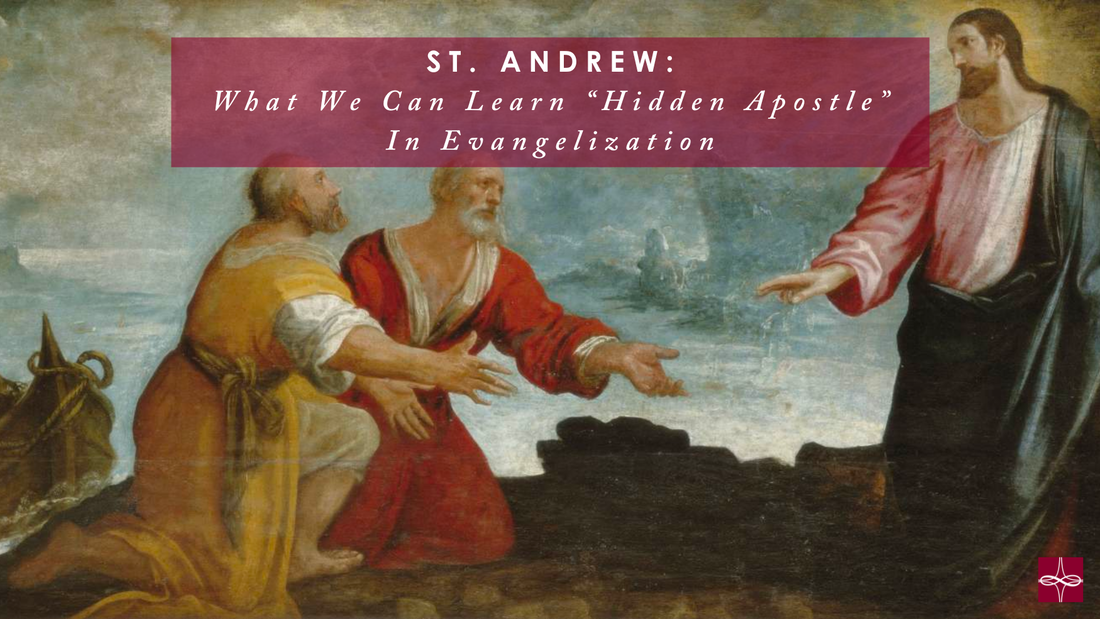

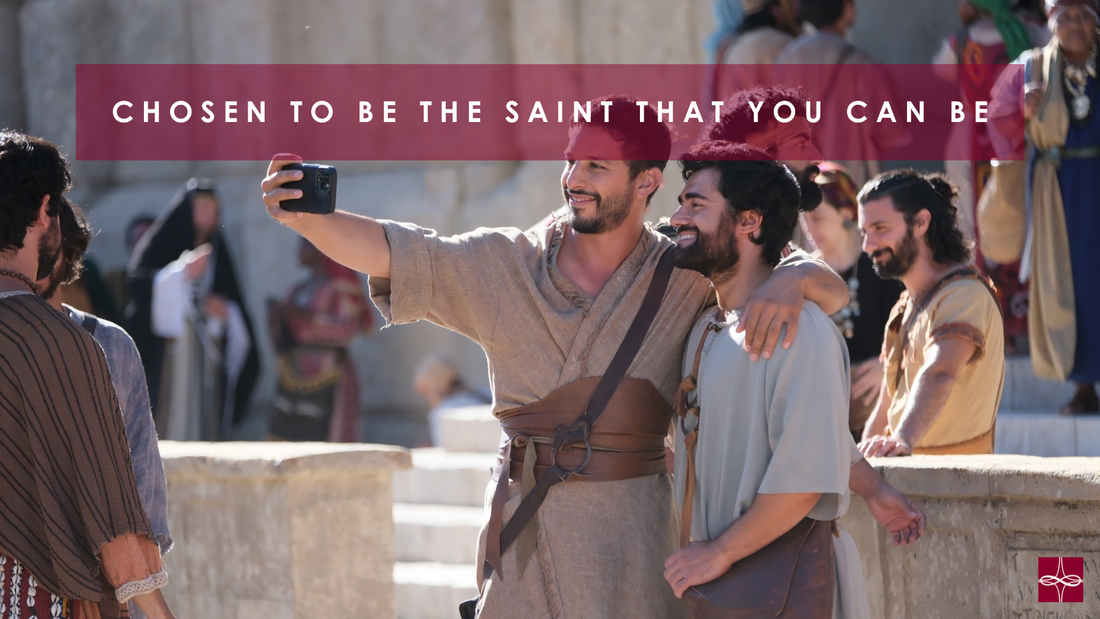
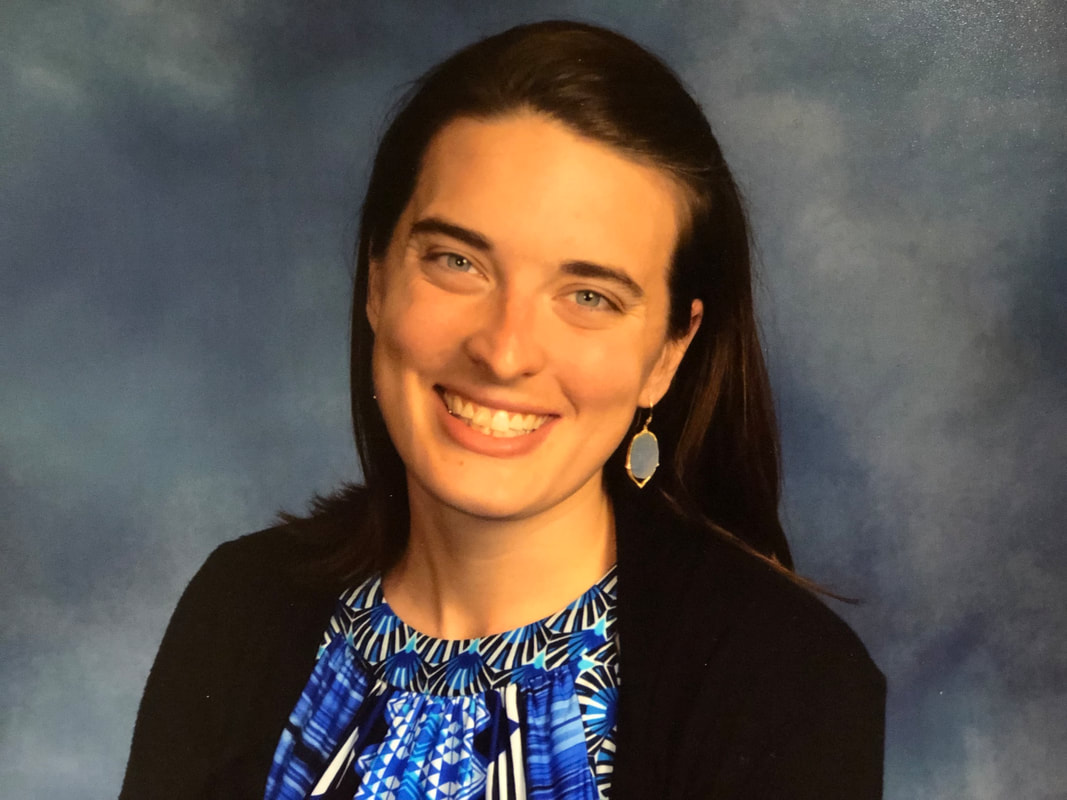
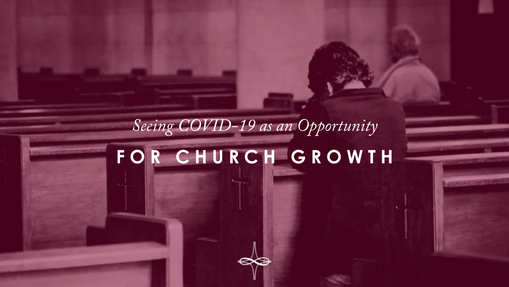

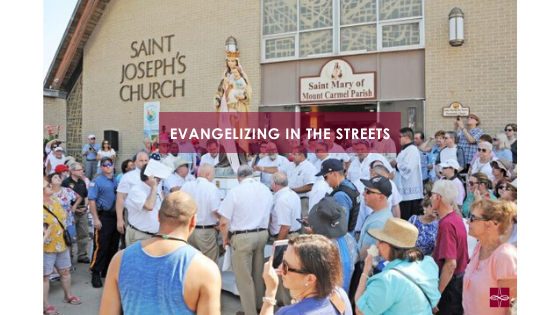
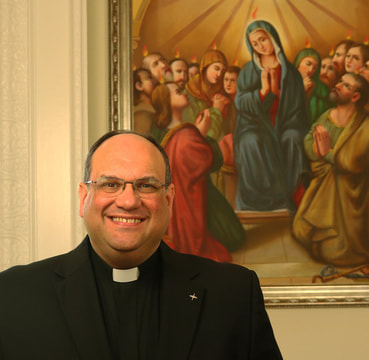
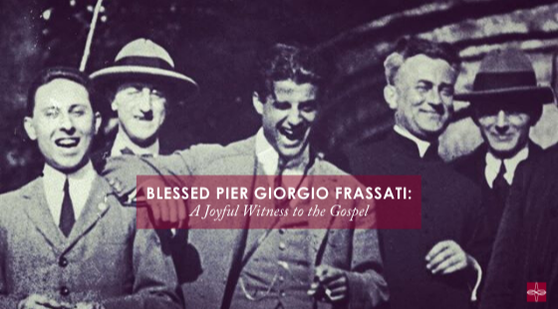

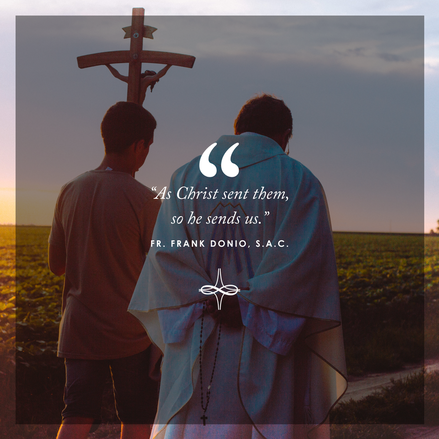
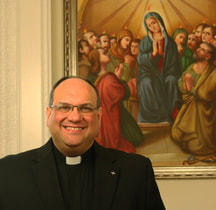
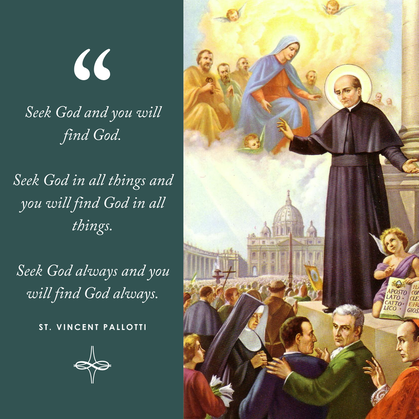
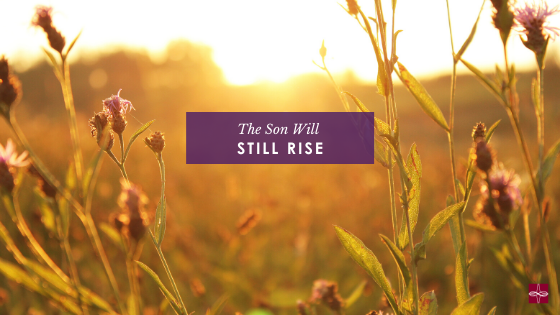



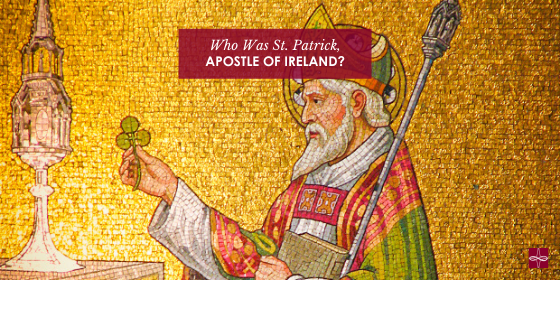

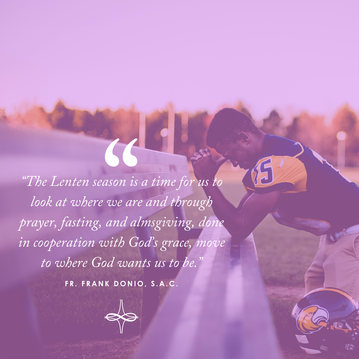
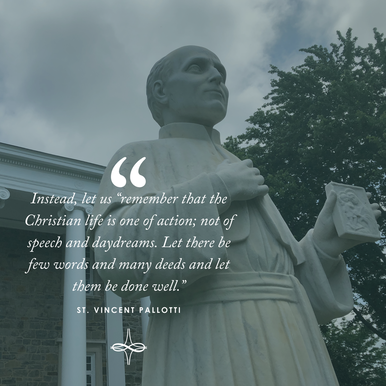
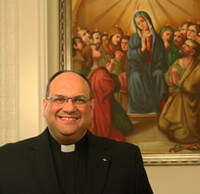
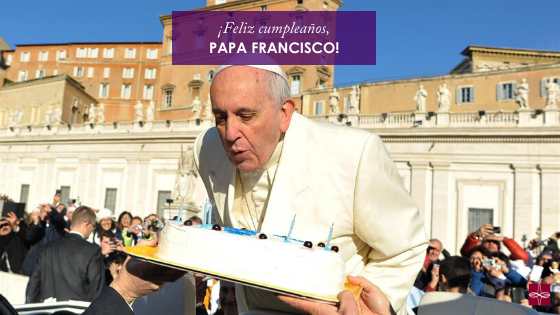

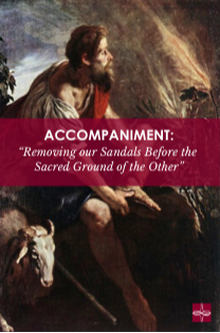
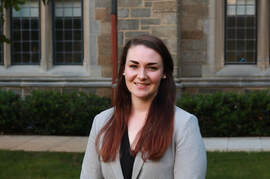

 RSS Feed
RSS Feed